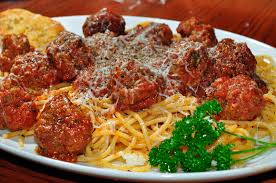22 October 2020
Pastafarians
v. Authoritarians.
By Neil Tidmarsh
 Mikhail Iosilevich was arrested at his home in Nizhny Novgorod last week. Mr Iosilevich is the head of the Church of the Flying Spaghetti Monster in Russia. The Church was founded in the USA fifteen years ago – its followers worship a divinity made of spaghetti and meat balls and are known as ‘Pastafarians’. It was recently established in Russia when Mr Iosilevich fought and won a legal battle to uphold his right to wear the sacred symbol of his faith in photographs on official documents. So the picture on his driving licence now shows him proudly wearing a kitchen sieve on his head.
Mikhail Iosilevich was arrested at his home in Nizhny Novgorod last week. Mr Iosilevich is the head of the Church of the Flying Spaghetti Monster in Russia. The Church was founded in the USA fifteen years ago – its followers worship a divinity made of spaghetti and meat balls and are known as ‘Pastafarians’. It was recently established in Russia when Mr Iosilevich fought and won a legal battle to uphold his right to wear the sacred symbol of his faith in photographs on official documents. So the picture on his driving licence now shows him proudly wearing a kitchen sieve on his head.
Mr Iosilevich was arrested because lectures for independent election monitors were held on Church premises last month. The authorities claim that the lectures were arranged by a banned organisation, Open Russia, an opposition movement funded by exiled former oligarch Mikhail Khodorkovsky. Mr Iosilevich now faces up to six years in a prison camp.
Mr Iosilevich’s story tells us a lot about a society where authority is authoritarian. Once upon a time it wouldn’t have had much significance here in the West, but these days – with coronavirus regulations seen by many as a sign of creeping authoritarianism in the wider world of Europe and the USA – it might have implications for all of us. Let’s treat it as a cautionary tale and take the points it raises one by one, just in case our leaders really are becoming intoxicated by the power of anti-coronavirus imperatives and are tempted to move on from this gateway drug to more hard-core Russian and Chinese flavoured addictions. Forewarned is forearmed. The authoritarian traits exemplified in this story are as follows.
(1) Authoritarian regimes can’t tolerate unorthodox ideas. They demand loyalty to their own ideology and see other belief systems as a threat to their power. In China, churches not authorised by the state have been suppressed or driven underground and Uighur Muslims are detained en masse. In Russia, Jehovah’s Witnesses and Scientologists are persecuted and in recent months the guru Sergei Torop (aka Vissarion) has been arrested and the shaman Alexander Gabyshev has been detained. So is Mr Iosilevich simply being persecuted for his beliefs?
(2) With the suppression of overtly political activism, opposition to authoritarian regimes often takes on a strange and superficially non-political form (as explored in this column last week). If the regime makes enemies of ‘heretics’ and non-conformists, then its fears become self-fulfilling. It appears that Mr Iosilevich’s church was, after all, hosting lectures for independent election monitors, something which it must have known the regime isn’t terribly keen on.
(3) Authoritarian regimes are as hostile to external influences as they are suspicious of internal non-conformists. Open Russia is banned because it’s funded from outside the country by an exiled oligarch. In fact, many organisations funded by ‘undesirable’ foreign bodies – including charities and NGOs – have been banned in Russia in recent years.
(4) Authoritarianism and corruption often go hand in hand. Mr Iosilevich claims that his arrest and the charges against him were made in retaliation to his protests against plans to build on a local green space and to discourage further protests.
(5) Authoritarian regimes often abuse their powers. They feel free to bend the rules and act above and beyond the law. Mr Iosilevich and Open Russia both independently insist that they have never had anything to do with each other, so it’s tempting to suspect that the accusation of involvement with the banned Open Russia was just a means to suppress something – i.e. independent election monitoring – which isn’t actually banned but which the authorities would like to ban.
(6) Last, and perhaps most alarming of all – the cock-up factor. The most authoritarian regimes are often the least efficient. A spokesperson for Open Russia says that his group had nothing to do with the lectures at the Church’s premises in the city of Nizhny Novgorod, but admits that Open Russia was holding training sessions on the same day in the city of Veliky Novgorod. It’s terrifying to think that Mr Iosilevich might spend six years in a prison camp just because bungling investigators confused two cities with similar names but over five hundred miles apart. The random and the haphazard are always more frightening than the predictable and understandable, especially where an all-powerful authority is involved. Kafka knew a thing or two, after all. His spirit is alive and well in Mr Iosilevich’s story, though of course that’s little consolation to Mr Iosilevich himself.


